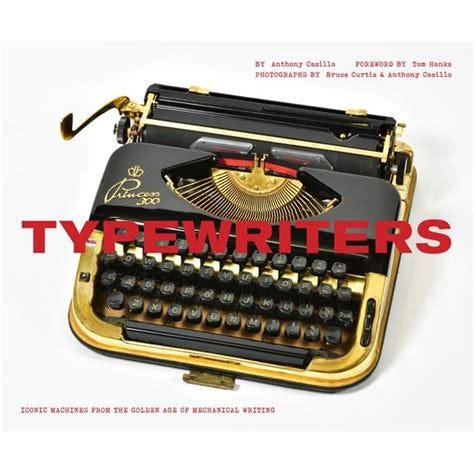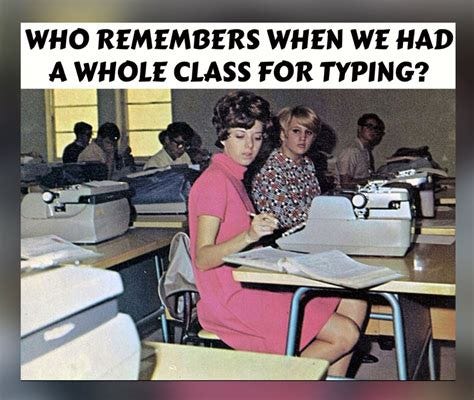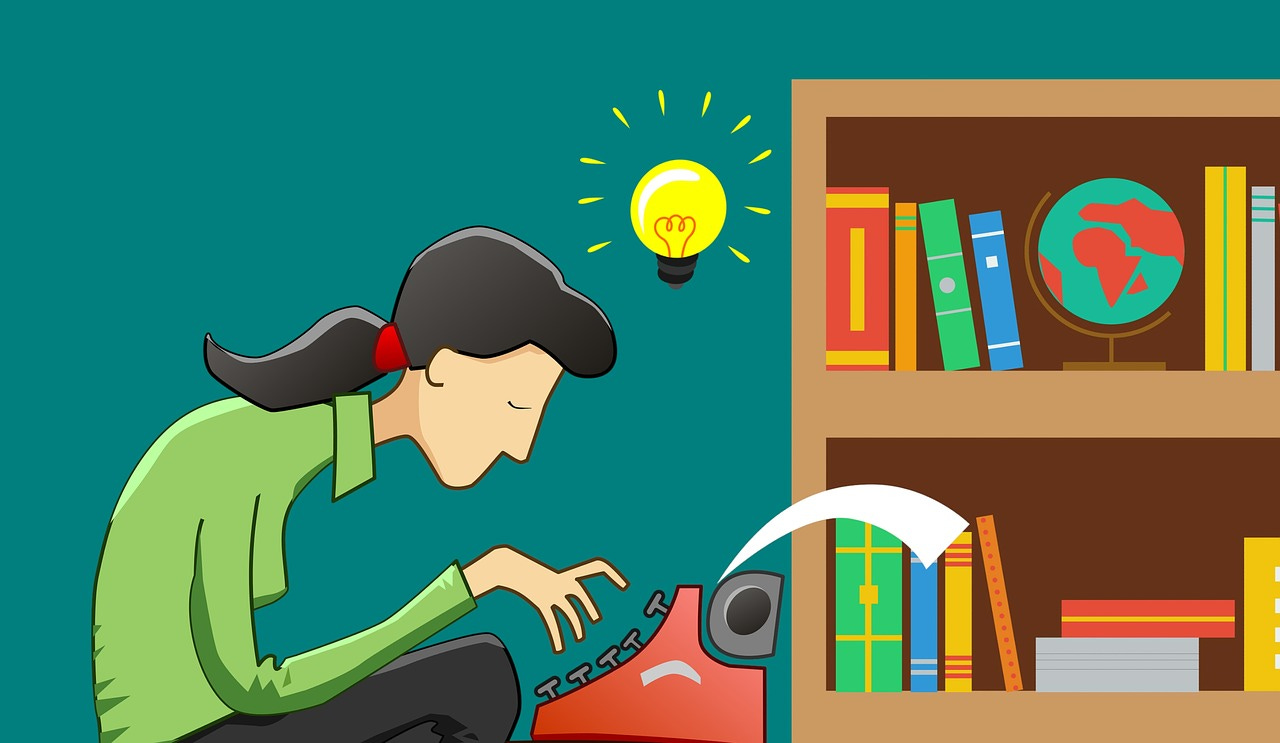It has been years—maybe even decades—since I have used a typewriter but I still hold a special fondness for these miraculous machines.
I recently discovered a wonderful coffee table book with exquisite photos of typewriters of different eras. I checked it out of the library and loved reading it (the font was a typewriter style font) and I even gifted it to a good friend of mine (a marvelous writer and editor) when she retired (well, she sort of retired…).
The typewriter became common in offices in the United States in the mid-1880’s. It quickly became the tool of choice for almost all writing other than personal handwritten notes and letters. Its use spread from the office into private homes. Typewriters were common in offices and homes until the 1980’s when personal computers came on the scene.
It is interesting that the QWERTY layout of the keyboard which was developed for typewriters in the 1870’s is still the standard for computer keyboards.
My mother insisted I take typing in high school. I did not want to take typing. I was going to college; I did not need to take typing; I had no intention of being a secretary.
My mother did not insist on many things but she did insist I take typing. “If you know how to type, you will always be able to get a job,” she said. It did not dawn on me how handy typing would be when it came to writing/typing high school and later college papers. I knew other students who had to hire someone to type their papers; thanks to my mother, I could type my own.
It makes me sad to think about my elitist attitude of not wanting to be a secretary because my mother was a secretary and a very fine one. She worked hard to save money to send all three of us children to college, an opportunity neither of my parents had. My parents loved learning and loved school. My mother was an excellent student and made it all the way through high school, but her parents did not have the resources to send her to college. She never got to fulfill her dream of being a teacher. She faced that reality as she faced most realities: it was what it was. She felt fortunate that her father did manage to send her to business school.
My father had to drop out of school in 8th grade. He was an orphan, living with an aunt and uncle and their many children in a little coal mining town in western Pennsylvania.They could not afford for him to stay in school; he went to work in the coal mines even after multiple teachers tried to convince his aunt and uncle (mostly his uncle) of what an excellent student my father was and how they hoped he could stay in school. It wasn’t possible.
Both my parents were excellent typists. My mother learned when she went to Hardbarger’s Business School. I think my Dad was self taught but I am not sure. Perhaps he took a course when he was in the Army.
My Dad had a huge typewriter—manual, not electric. He sometimes had it on his desk back in our den, but his preferred location was at the end of our dining room table. This way he could see the television in the living room plus be in constant conversation with my mother as she cooked or with anyone who was coming and going through the dining room.
He loved to write letters to his “buddies” as he would call them. Most of these buddies were people he had served with in the Army. He was excellent about keeping in touch with people and tracking down those he had lost track of over the years
My Smith Corona electric portable was a dream. I wrote many high school essays on that typewriter. I still remember the challenges of using carbon paper and having to use the Wite-out when I made an error. Or having to retype an entire page if my editing was beyond a few misspelled words.
I type every day—but I type on a computer now. Or on my phone or on my iPad. At the computer I still touch-type and can type at quite a fast speed. Again, thanks to my Mother insisting I take that typing class and thanks to being used to my father at his typing spot on the dining room table, using a machine to write seems totally natural.
My husband never took a typing class in high school. The truth is there were very, very few boys in those classes in the 1960’s. But he is a speedy typer, even though he doesn’t touch type. He has developed his own system as probably many have.
I read that Tom Hanks collects typewriters. I don’t think we have the space or the inclination to start a collection, but I must admit, I wish I had saved a little manual Underwood typewriter that my Dad had previous to his larger typewriter. Just for nostalgia, maybe to type a few words or phrases as part of an art project. All I have left is to leaf through a beautiful coffee table book about typewriters and admire their practical beauty.









Oh the memories!!! Thank you Jeanne. I wish I had saved mine too. They were truly a work of art compared to the iPhones and computers we have today. Looking at the picture of the typewriter brought back memories of my father sitting at the dining room table with his. Sweet!
As mentioned I do have my own system which works for me. I took one summer of typing but it just didn't stick in my brain. I wish it had. I use about 4 fingers. I remember this cute girl I was in love with during college who typed a few papers for me. Wonder if you remember her? LOL. I loved those little round pink erasers on a roller with the brushes on one end to brush away the dirt. And having to be so careful how much I erased so as not to put a hole in the paper. I can see your dad sitting at that table with his pipe in his mouth, his eye on the TV and typing away to all his army buddies.Thanks for the memories.